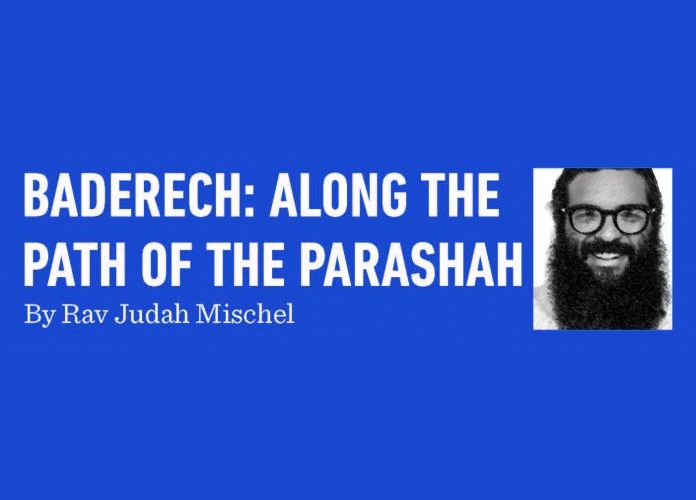Word Is Bond
Rav Yaakov Kamenetsky, zt’l, beloved rosh yeshiva of Torah Vodaath and one of the gedolei haDor, was respected for his wisdom, sensitivity, and yashrus, unwavering commitment to honesty and truth. When he was 90 years old, during his last visit to Eretz Yisrael, relatives were surprised to see the rav taking off his tefillin at the end of davening and then putting on tefillin of Rabbeinu Tam (today worn by chassidim and Kabbalists in addition to the “standard” tefillin of Rashi).
Reb Yaakov’s family members knew that it had never been his custom to wear Rabbeinu Tam tefillin and wondered aloud why the rosh yeshiva was doing so now. “You see,” he said, “about fifty years ago, Reb Shraga Feivel (Mendlowitz, zy’a, the founder of Torah Vodaath) encouraged me to add the donning of Rabbeinu Tamtefillin, and to strengthen his case, he mentioned that the Chofetz Chaim had also added this practice in his later years. During the conversation, I told Reb Shraga Feivel, ‘The Chofetz Chaim started donning Rabbeinu Tamtefillin when he turned 90… when I reach 90 I’ll put them on.’ That was a long time ago… 50 years. But since I gave my word to Reb Shraga Feivel, on my 90th birthday I started putting them on.”
n n n
Our double sidrah begins with the parashah of nedarim, vows, referring to a voluntary verbal declaration of an intention to make an additional offering to Hashem. This declaration not only expresses a desire to do something “more” to draw close to Hashem, but creates an obligation to perform that action:
“Ish ki yidor neder, if a person makes a vow to Hashem or makes an oath to prohibit himself something that the Torah permits, lo yachel devaro, he may not violate his word, k’chol hayotzei m’piv, yaaseh—and whatever has come out of his mouth he must do” (30:3).
Rashi clarifies: Through speech, we have the opportunity to draw down kedushah, holiness, to illuminate and sanctify… Lo yachel devaro—our words shouldn’t be chullin, mundane… Lo yechaleil devar—we must not profane our words, nor treat our words as being “unholy.”
Through our speech we are empowered to create new realities. We have the ability le’esor issar, to make an object or activity which is permitted into one that is forbidden. We can also elevate a mundane act into a holy act.
From the phrase in our pasuk, k’chol hayotzei m’piv, yaaseh—“and whatever has come out of his mouth he must do,” Chazal deduced that there is both a mitzvas aseh, a “positive commandment,” to fulfill what one has said, and a “negative commandment” to not desecrate one’s word.
In Yiddishkeit the power of speech is paramount. The legally binding power of nedarim is considered so strong that many have the practice of saying b’li neder, “without a promise,” after stating their intention to do something. This is to ensure that if, in the event of unforeseen circumstances one is not able to fulfill their pledge, one’s words did not constitute a halachic vow.
This week marks Rosh Chodesh Menachem Av, and the loss of our Temple and exile is at the forefront of our thoughts and practice. The Sefas Emes, Rebbe Yehudah Aryeh Leib Alter of Gur, zy’a, points out that the semichas haparshios, the juxtaposition of the end of the previous parashah and the beginning of our parashah, is significant. The previous parashah (Pinchas) concludes with a discussion of the korbanos, the sacrificial offerings and libations of the Yamim Tovim, and our parashah begins with the sugyah, the topic, of nedarim. This is to show that a Jew’s speech, when reciting the Torah’s verses of the korbanos in prayer, has the power to bring re’ach nicho’ach, “a pleasing fragrance” to the Creator, even in times when the Temple is destroyed.
Indeed, our words of Torah and tefillah are the highest manifestation of elevated speech: K’chu imachem devarim, v’shuvu el Hashem… “take words with you and return to Hashem” … v’neshalma parim sefaseinu… “and let us render for bulls, the offering of our lips” (Hoshea 14:3).
May we be zocheh to honor our commitments and fulfil all that we pronounce, and to believe in the power of our words and prayers. And may Hashem fulfill His promise that the Beis haMikdash be rebuilt, speedily in our days. n
Rav Judah Mischel is executive director of Camp HASC, the Hebrew Academy for Special Children. He is the founder of Tzama Nafshi and the author of the “Baderech” series. Rav Judah lives in Ramat Beit Shemesh with his wife Ora and their family












